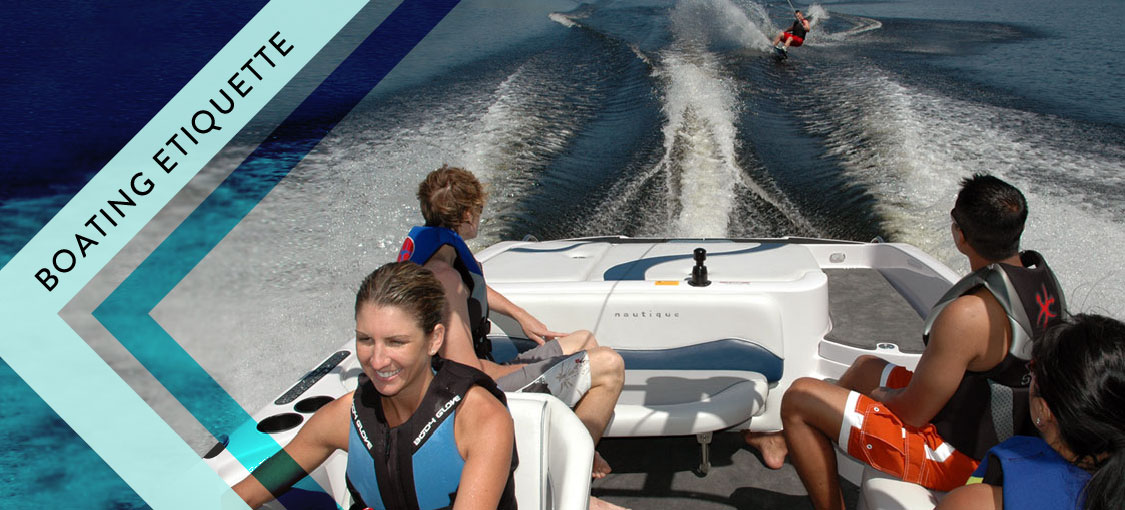Boating Etiquette
Boating Etiquette – the unspoken rules of the water
Recreational boating has an etiquette – the customary code of accepted behavior on and around the water. Boating etiquette is about safe behavior, as well as what’s socially accepted. Here are some of the basics to help you navigate the boating world with ease while not creating a stir among fellow users of the water.
Top 10 rules to respectful boating – make the right kind of waves
Remember, these are guidelines and should not serve as a replacement for learning the rules, regulations and laws for your local body of water. Whether you’re a novice or veteran boater, learn more by taking a boating safety course.
- Respect the ramp. Good boating etiquette starts before you enter the water – at the dock. Prepare your boat and equipment before getting into position to launch. Anything else is disrespectful to fellow boaters.
- Own your wake. The fastest way to make the wrong kinds of waves is to literally throw a big, obtrusive wave at another boat, swimmer, angler or shoreline owner. This is much more than being a nuisance or disrupting others’ experience on the water. It’s dangerous to those unable to tolerate a large wake. Stay at least 200 feet from the shoreline and other boaters.
- Keep the tunes in check. Sound is amplified over the water, so keep the music at a decent level. Not only is it a disturbance to others but the operator may not hear the spotter.
Pack in. Pack out. Seems like common sense, right? Yet shorelines are still lined with trash being thrown overboard. Take care of the body of water you love and dispose of any trash you have. Do not throw it overboard! - Slow your roll. Does the body of water you’re on have a speed limit or slow-no-wake restriction? It’s your responsibility to know it and respect it. You are responsible for any damage you cause to other people’s property.
- Rules of the road. Become familiar with waterway markers and navigation rules, which dictate how you operate your vessel in order to prevent collision.
- Be prepared. If you are the captain, you need to be prepared with the safety rules for your craft and make your guests aware as well. Know state and local laws for the body of water you’re on. Set a good example by always wearing a life jacket and have enough life jackets for each person onboard. Beyond that, make sure to have the appropriate fit.
- Fuel and go. At the fuel dock, get fuel, pay your bill and move out of the way. If you need to buy additional supplies, relocate your boat. Don’t forget to run your blower before starting.
- Anchoring and mooring. Enter an anchorage or mooring area at a slow speed. Don’t create a wake that will disrupt other anchored boats. The first boat sets the tone. Mimic how they tie off, how much line you use and how much distance you allow between you and other boats. The busier the boat, the more space you should give yourself.
- Be polite – give a wave. When passing another boat, give a little wave hello. Boating is all about having fun and being part of the boating community. Embrace it, enjoy it, and share it for generations to come.


